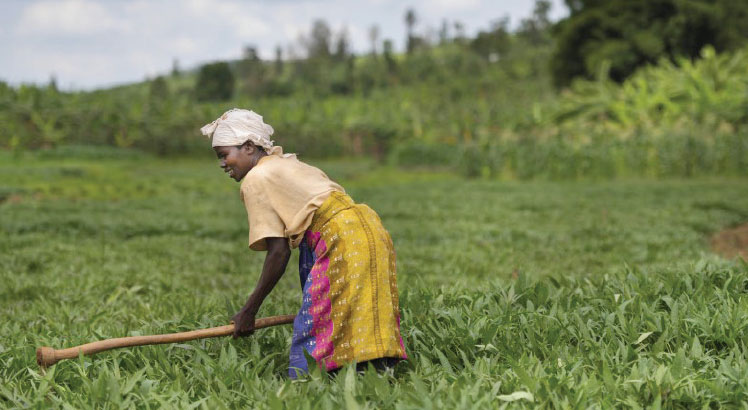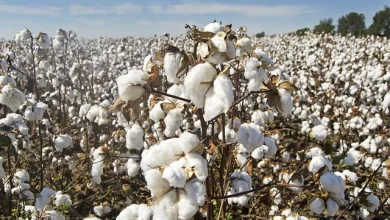Porous borders
Continued smuggling aided by porous borders is hitting local manufacturers hard, threatening their survival and jobs of thousands of Malawians, it has been established.
Manufacturers of products such as cooking oil, wheat flour and carbonated drinks, among others, say in interviews that if this trend continues, it could lead to the collapse of local manufacturing industry which is the source of livelihoods for many people in the country.
Spot checks in border posts in Mulanje, Mangochi and Tsangano in Ntcheu show that smuggling continues unabated as traders bring in goods from neighbouring Mozambique where value added tax (VAT) is not levied on some of the products.
Local manufacturers said of late, smuggling of products such as wheat flour and cooking oil is being heighten by the 16.5 percent value added tax (VAT) levied on these products.

Treasury introduced VAT on wheat flour in 2016 and last year, it reintroduced the same tax on cooking oil in the 2020/21 National Budget valued at K2.2 trillion.
A local trader at Tsangano in Ntcheu Charles Gonthi said in an interview last week that people now prefer products from Mozambique because they are relatively cheap compared to those from Malawi.
He said: “We have seen rising demand for cooking oil from Mozambique because it is cheap compared to those manufactured here. We are told that in Mozambique they do not charge tax for the product.
“We are seeing people from as far as Blantyre and Lilongwe who come here to buy cooking oil and flour from Mozambique in bulk.”
In Mulanje and Mangochi, the situation is the same, according to the traders we spoke to.
“I bring in about 150 litres of cooking oil and 20 bags [50kg] of flour from Mozambique every day. Business is thriving,” said Menard Magwira, who crosses the Ruo River which borders Malawi and Mozambique in Mulanje.
While this is a boon for traders, local manufacturers are crying foul.
In an interview, Venkatesh Rao, general manager of Bakhresa Malawi Limited, one of the wheat manufacturers, said the introduction of VAT has reduced capacity utilisation of wheat mills to below 25 percent and has also heightened smuggling.
He lamented that local wheat millers cannot compete with cheap smuggled flour from Mozambique and Tanzania where there is no VAT.
“These issues are adding cost to the manufacturing of wheat flour in Malawi, making it uncompetitive against smuggled wheat flour and giving advantage to traders and others who are involved in unscrupulous activities for their benefit,” said Rao.
He said because of this, there is no level playing field as the bakeries buying locally produced flour cannot compete with the bakeries using smuggled flour.
“This will give a wrong signal to long-term investors who can do massive investments to generate employment and pay taxes,” he said.
Agri Value Chain Limited (AVC), one of the manufacturers of cooking oil, said they plan to cut 25 percent of its jobs due to the reintroduction of VAT which increased smuggling.
AVC operations manager Rajneesh Dabral, said in an interview reiterated that one of the impacts of the reintroduction of VAT has been the influx of illegal cooking oil from neighbouring Mozambique.
He said: “We are not selling the cooking oil as we used to because people are not buying. If we are not selling, it means we cannot produce more.
“If we are not producing, it also means we cannot buy consumables such as firewood and coal. We also cannot keep the manpower that we have.”
Dabral decried free flow of cooking oil from Mozambique into areas such as Mangochi, Ntcheu, Dedza and Lilongwe.
“There has been a significant drop in sales and it is going to have a negative impact on the cooking oil industry and the jobs,” he said.
Besides that, Dabral said industry players were on an expansion drive as well as value addition on existing plants and structure, but said the reintroduction of VAT will further weaken the industry confidence.
In an earlier interview, Consumers Association of Malawi executive director John Kapito said they feel vindicated as they earlier warned that the tax measure will result in increased price of cooking oil, smuggling and affect jobs.
“We warned that the price of cooking oil will go up when the Minister of Finance reintroduced the VAT, which was removed in 2017. This tax measure will affect a lot of Malawians who consume cooking oil and may also affect jobs in the long-run,” he said.
But Malawi Revenue Authority (MRA) has always argued that the re-introduction of 16.5 percent VAT was not expected to culminate in price increases on cooking oil as manufacturers would claim input VAT.
In a statement, MRA argued: “When a commodity is exempt, the VAT that comes with input is absorbed as part of the costs on inputs. This, therefore, increases the cost of the product or production cost.”
MRA further said when a product moves from exempt to taxable at standard rate, the cost of production is reduced and it was, therefore, expected that the re-introduction of VAT would not result in price hikes as manufacturers would claim input VAT.
But the contrary has happened as prices of cooking oil have gone up by about 30 percent, and at the same time smuggling of cooking oil is on the rise.
Malawi Confederation of Chambers of Commerce and Industry director of business environment and policy advocacy Madalitso Kazembe said the smuggling is a major threat to local industries, particularly on jobs and expansion plans.
On his part, Minister of Trade Sosten Gwengwe also admitted that smuggling is a major threat to the local industry.
Smuggling is the illegal importation or exportation of goods subject to customs control.





